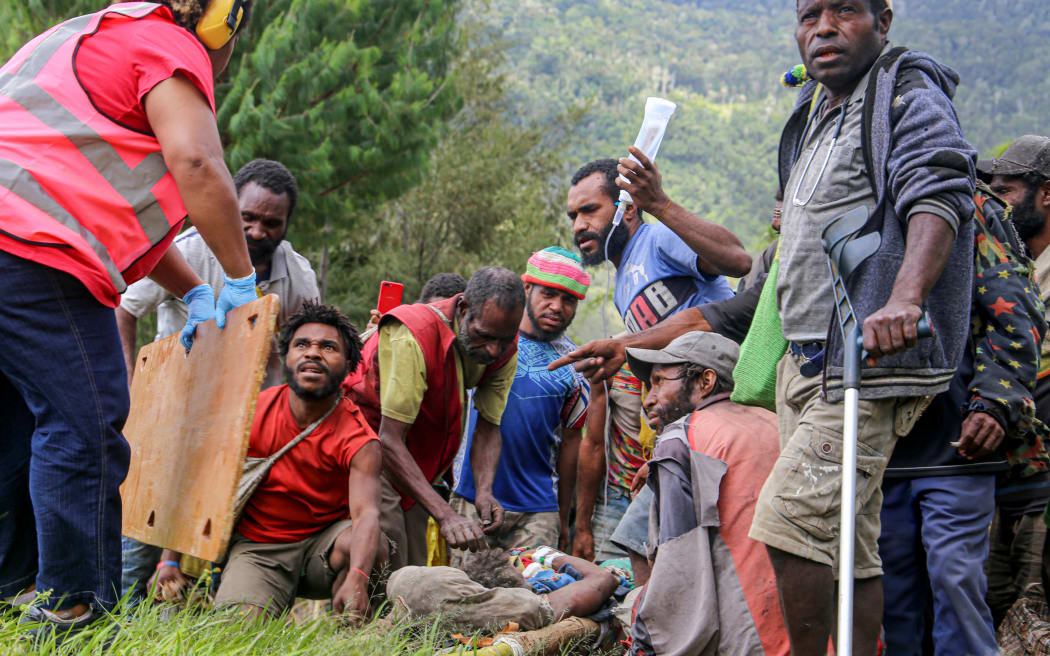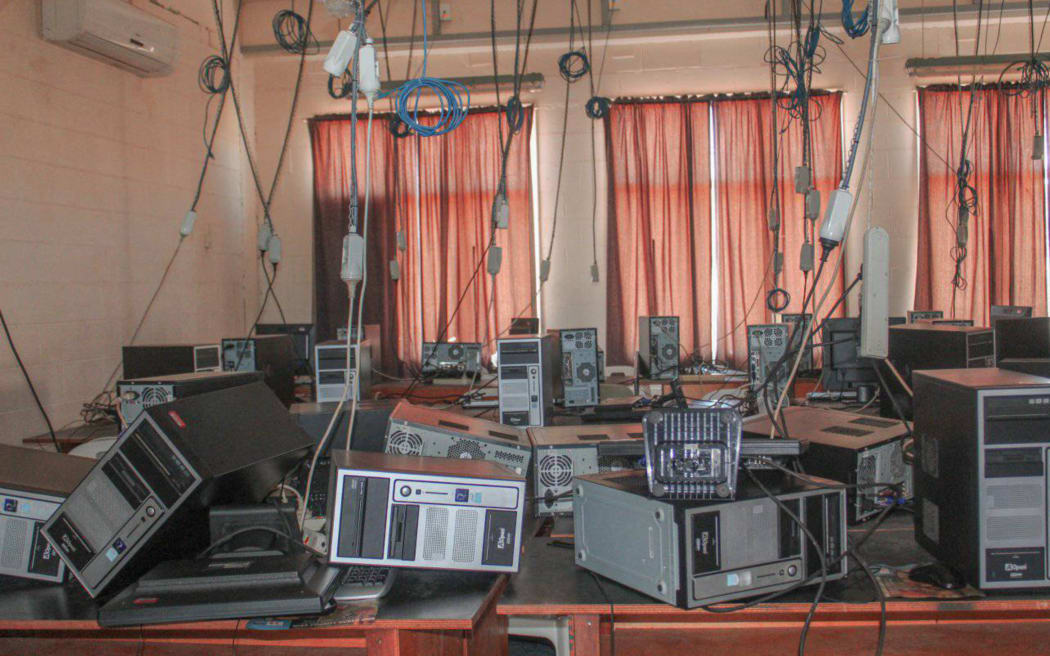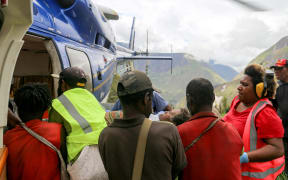
An injured villager being prepared for evacuation by helicopter from Kombul village to the nearby the city of Lae following a 7.6-magnitude earthquake on 11 September, 2022. Photo: EREBIRI ZURENUOC - MANOLOS AVIATION / AFP
Isolated rural areas of Papua New Guinea have been hit hardest by the a 7.6 magnitude earthquake.
At least seven people were killed, and buildings and essential infrastructure were damaged when the earthquake struck over the weekend in the Eastern Highlands of Papua New Guinea.
The powerful quake was felt all over the country and in neighbouring Indonesia.
A magnitude 5.0 quake also struck after the main one.
Police Commissioner David Manning said three deaths had been reported from Kabwum District and there were an unknown number of injuries.
Medical evacuations have taken place from Kabwum, and landslides were identified in Bulolo, Wau and Boana.
Damage was sustained by houses, public roads and highways, and the Muya Power Plant infrastructure.
Manning warned people to be vigilant for aftershocks.
RNZ Pacific's correspondent in Papua New Guinea, Scott Waide, was at his home in Lae when the 7.6 quake happened.
"Usually we have earthquakes, but they usually last 30 seconds, 40 seconds, a minute maybe. This one went on and intensified, so we brought all our kids out onto the ground," Waide said.
"But even on the ground, it felt like waves going through it, going through the Earth. So we had to move away from the power poles, just in case the power poles come down. It was quite unnerving watching this occur right in front of us."
Located on the Pacific's "Ring of Fire", Papua New Guineans are accustomed to earthquakes but Port Moresby resident Gorethy Kenneth, a senior journalist at the South Pacific Post, said there was panic in the capital.
"I was getting ready to drive to the office for work. My children were watching television and I was drinking coffee. We live in a compound with 10 units. And then all of sudden, the earthquake. Everyone started screaming and running outside," Kenneth said.
"I just stood there, I was thinking 'what's going to happen', and then I got the kids, switched the TV off and went outside."
Limited communications in the isolated highlands of Papua New Guinea means the full extent of the damage and casualties remains unknown.

Photo: Supplied/WanNaiks Gallery
Damaged cities
Cracked concrete, fallen houses and damaged roads have been reported in most cities.
Social media photos show a badly damaged dormitory at local university in the highlands town of Goroka.
Although urban areas appear to have escaped any severe destruction and initial reports of casualties are low, Waide said there was great concern for rural areas near the epicentre of the quake.
"What many people are concerned about are reports from rural areas because there were reports of landslides. Getting the information out is difficult because a lot of the places don't have network coverage," Waide said.
"The epicentre is in the mountains. So, it may take some time before people gain access to network and they will be able to send pictures."
Prime Minister James Marape said the damage would be less than the 7.5 magnitude earthquake that struck Papua New Guinea in 2018, causing more than 160 deaths.
Shortly following the recent earthquake, Marape said he had been advised by experts that the quake was the result of a slip of plates rather than a more severe movement of tectonic crusts.
"I've been advised that there's a clear difference between this earthquake and the earthquake that occurred between Hela Province," Marape said.
"This one is a slip and the other was a tectonic crust movement. With a tectonic movement, one is coming up and another is submerged. This one is just a slip. We're being advised that a slip is much less."



